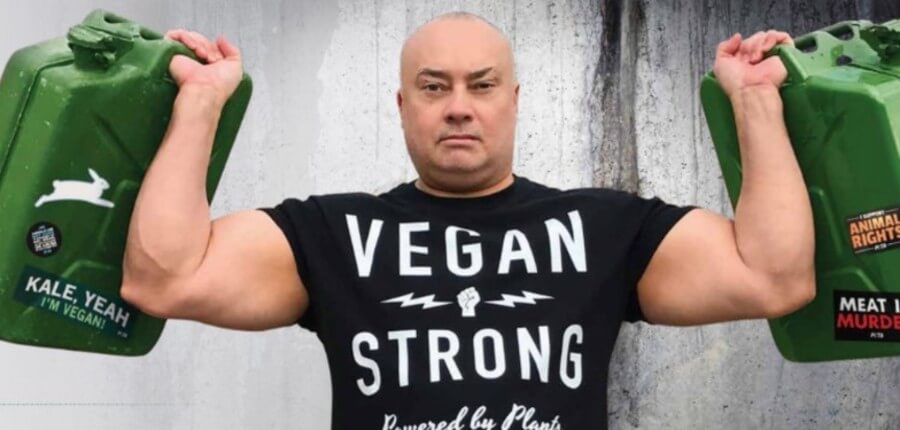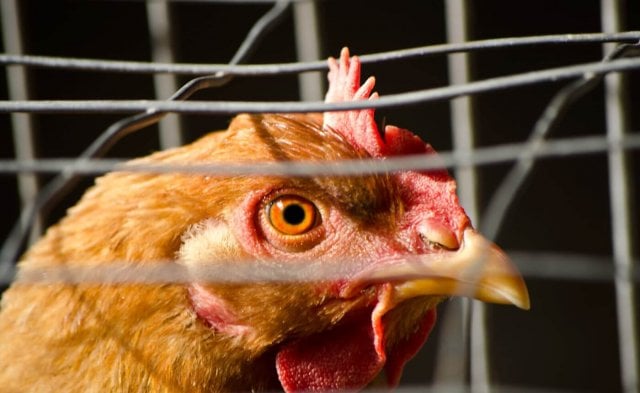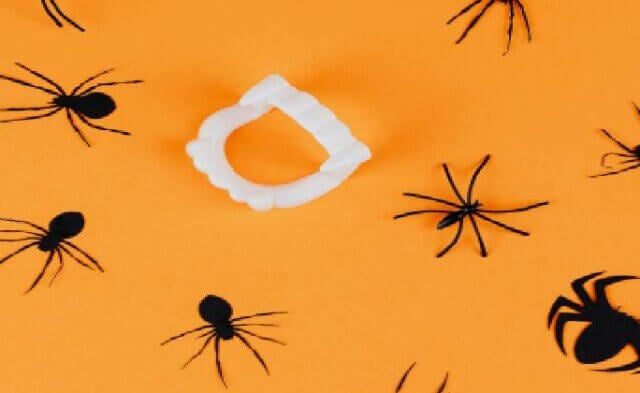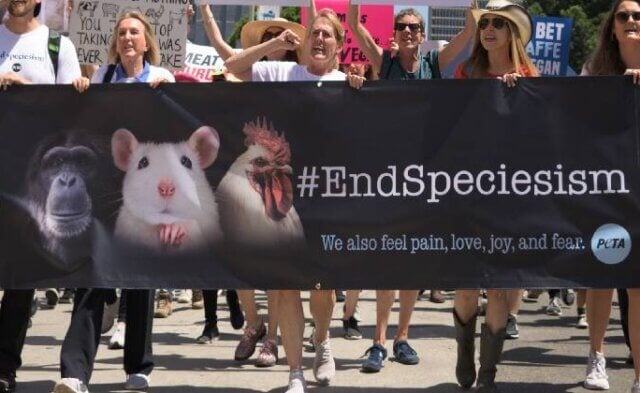Please enjoy this article from the latest issue of our magazine, PETA Global. To begin your subscription, become a PETA member today!
Appearances don’t tell the whole story. Nobody knows that better than Clifford Warwick, who looks like the powerful weightlifter that he is, while also working as a biologist and reptile specialist. As this snake-protecting strongman will tell you, people sometimes make false assumptions about reptiles because of the way they look. He has assisted PETA with several cases, including the groundbreaking investigation into notorious animal dealer US Global Exotics – which resulted in the largest seizure of animals in US history.
In this interview, he explains why animals who aren’t “cute and cuddly” still deserve respect and compassion.
PETA UK: How did you get interested in helping reptiles?
Clifford: When I was a boy, I kept many reptiles. It took me until the age of 14 to realise that confining them to small glass tanks was wrong. Since then, I’ve endeavoured to act as their ally by adding to the scientific evidence for their sentience, welfare, and protection.
PETA UK: Together with PETA UK, you’re leading a campaign calling for minimum cage sizes for snakes. Why is this so important?
Clifford: Ironically, many who like snakes – reptile keepers – are among their greatest abusers, imprisoning these sensitive animals in tiny, bare, and boring containers where they cannot even stretch out.
Observational and other research science makes it absolutely clear that snakes must be allowed to straighten their bodies. Conditions where they cannot fully stretch out are associated with over 20 physical diseases and behavioural problems.
PETA UK: People sometimes use “snake” to mean a slippery character. Why is this unfair?
Clifford: For a start, snakes are not “slippery” – they are dry, often warm, and by nature behaviourally very “upfront and honest” about what they do. The further back one goes, the more one uncovers milestone evidence of derogation – “crafty” Kaa in The Jungle Book, and before that, Adam and Eve’s corruptive serpent, along with many other snake-demeaning biblical references. Basically, the “snake trolls” have been at it a long time, and fixing all that is going to take a while.
PETA UK: What advice do you have for someone about to buy a snake, turtle, or lizard?
Clifford: Don’t do it, and if you really must – then turn to a rescue centre! But before that, visit EmodePetScore.com, which provides objective, user-friendly scientific guidance on the challenges of keeping any animal. Research shows that most reptiles die in their first year in the home, so they do not adapt to caged life in the living room – despite the sales twaddle and lies that a pet store may throw at you.
PETA UK: Have you run into the “boys will be boys” excuse when it comes to cruelty to animals?
Clifford: Power confers responsibility: anti-bullying, anti-abuse, anti-aggression. Being strong – of mind or body – is about using strength to do what’s right. Kids’ unadulterated and naturally healthy and compassionate interest in species over whom they have power was part of the driver (besides just giving myself a laugh) behind my recent book The Worms!
PETA UK: You’ve been a vegan bodybuilder for nearly 25 years. What reactions do you get at the gym?
Clifford: I recall in the 1990s weighing in at about 12 stone or 175 pounds (75 kg in new money) and constantly feeling the need to use my muscles. Then I discovered heavy weight lifting, and in a year I’d packed on 55 pounds (25 kg) of muscle: I was bench-pressing twice my bodyweight – all on only one extra bowl of cereal a day. I quickly left my “vegan-diet-doubting” gym compatriots behind, and shortly after the millennium, I was bench-pressing over 600 pounds (280 kg). When crowds gather around me at the gym and ask what I eat, I drop it in – if nothing else, it makes people realise that whether or not being vegan makes one strong, one can be strong being vegan!
Take Action Now
Captivity kills. Please advise everyone you know never to buy an animal from a pet store or breeder.





